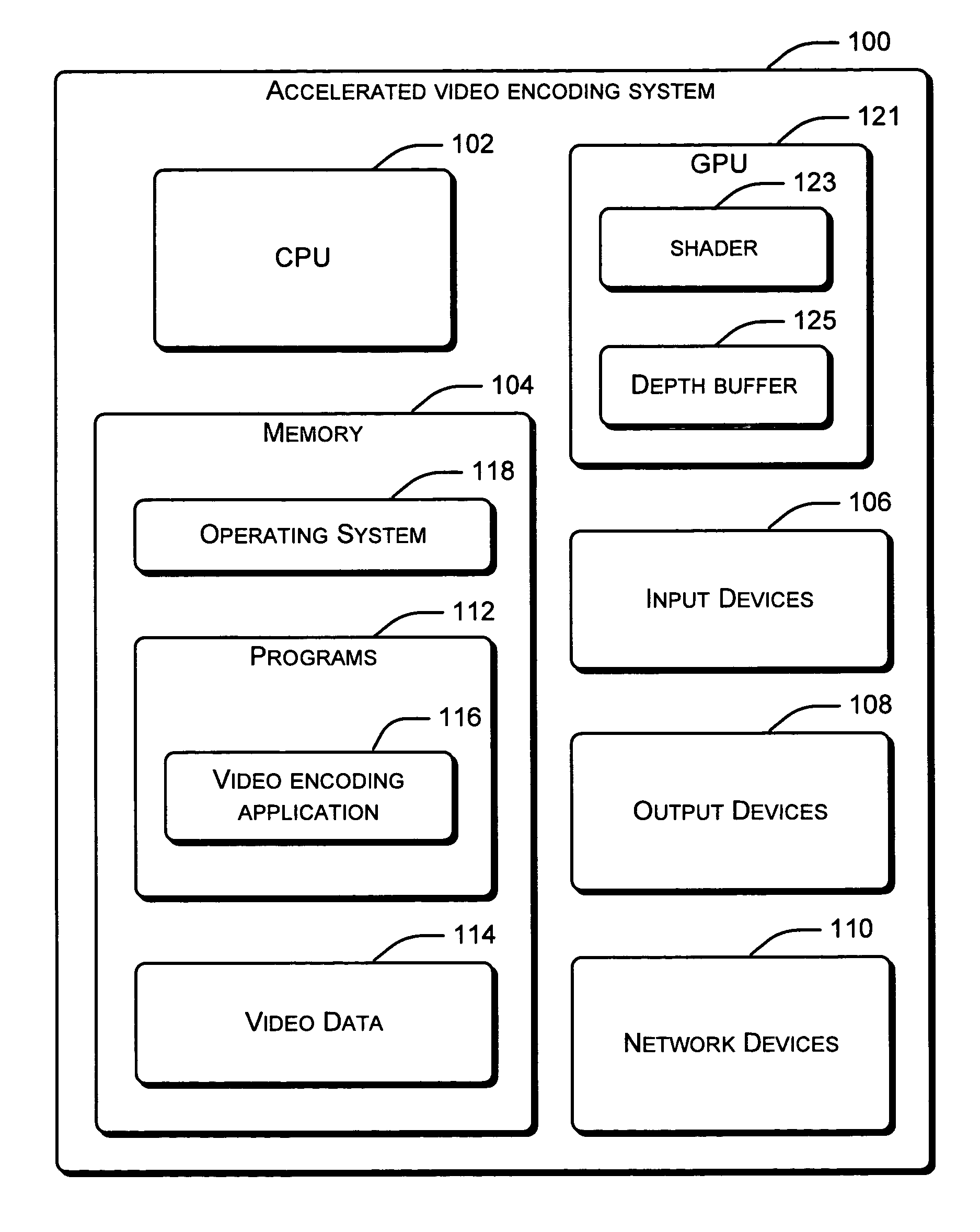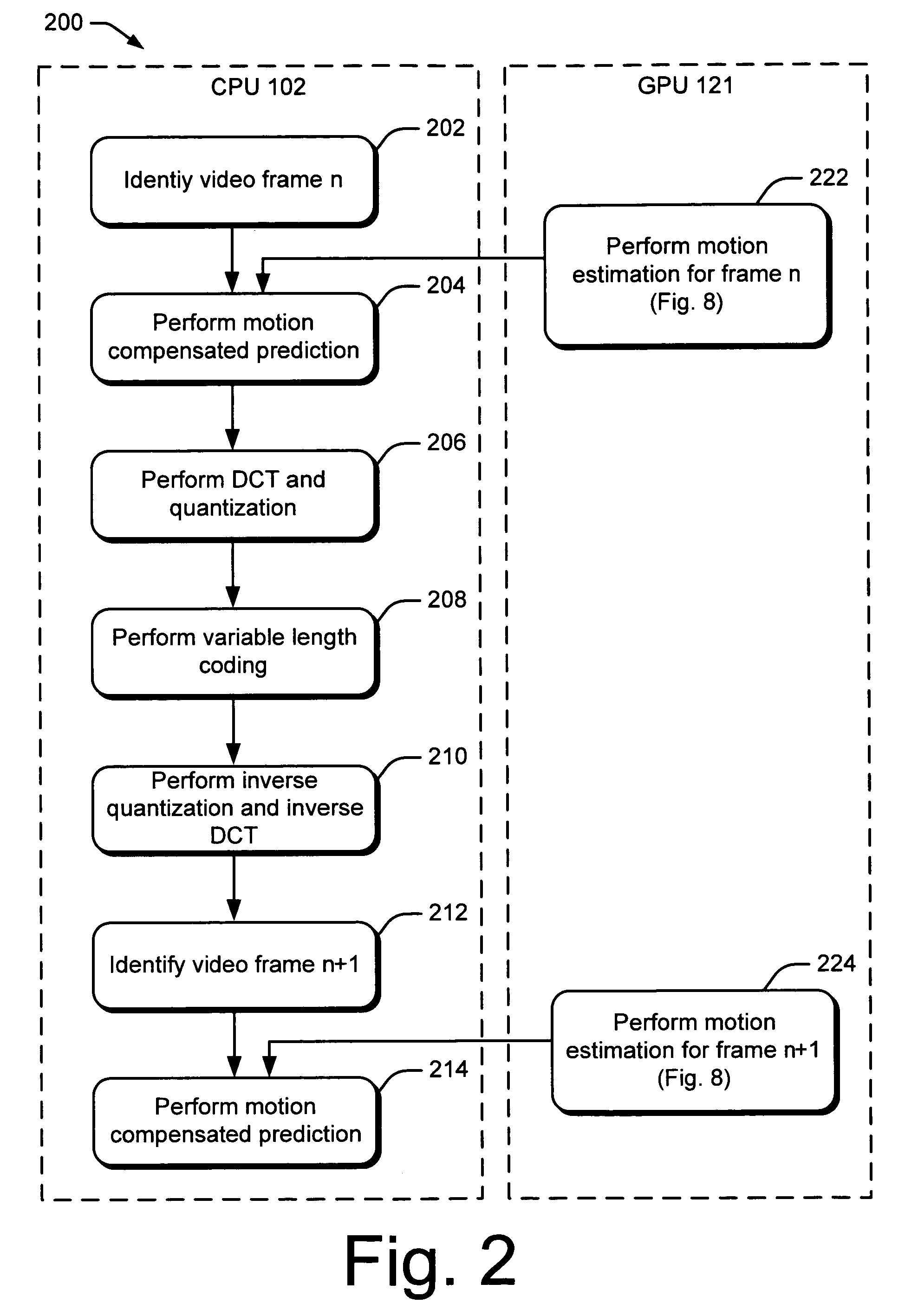Accelerated video encoding using a graphics processing unit
a video encoding and graphics processing technology, applied in the field of video processing, can solve the problems of high processing power required for video encoding, high computational intensity of video encoding, and often the most complex process of motion estimation, so as to improve the utilization rate, accelerate video encoding, and accelerate the effect of video encoding
- Summary
- Abstract
- Description
- Claims
- Application Information
AI Technical Summary
Benefits of technology
Problems solved by technology
Method used
Image
Examples
Embodiment Construction
[0021]The processing power of graphics processing units (GPUs) has been increasing much faster than that of central processing units (CPUs). Computers are increasing equipped with high performance GPUs. The described systems and methods utilize the processing power of GPU to handle motion estimation. In order to use a GPU to accelerate video encoding, a different video encoding architecture is needed such that the CPU and the GPU can be operated in parallel. An example of such architecture is described below.
[0022]FIG. 1 illustrates accelerated video encoding system 100 within which the described systems and methods can be either fully or partially implemented. Accelerated video encoding system is only one example of a computing system and is not intended to suggest any limitation as to the scope of the use or functionality of the invention.
[0023]Accelerated video encoding system 100 is configured to receive video signal from a variety of sources. Accelerated video encoding system 1...
PUM
 Login to View More
Login to View More Abstract
Description
Claims
Application Information
 Login to View More
Login to View More - R&D
- Intellectual Property
- Life Sciences
- Materials
- Tech Scout
- Unparalleled Data Quality
- Higher Quality Content
- 60% Fewer Hallucinations
Browse by: Latest US Patents, China's latest patents, Technical Efficacy Thesaurus, Application Domain, Technology Topic, Popular Technical Reports.
© 2025 PatSnap. All rights reserved.Legal|Privacy policy|Modern Slavery Act Transparency Statement|Sitemap|About US| Contact US: help@patsnap.com



